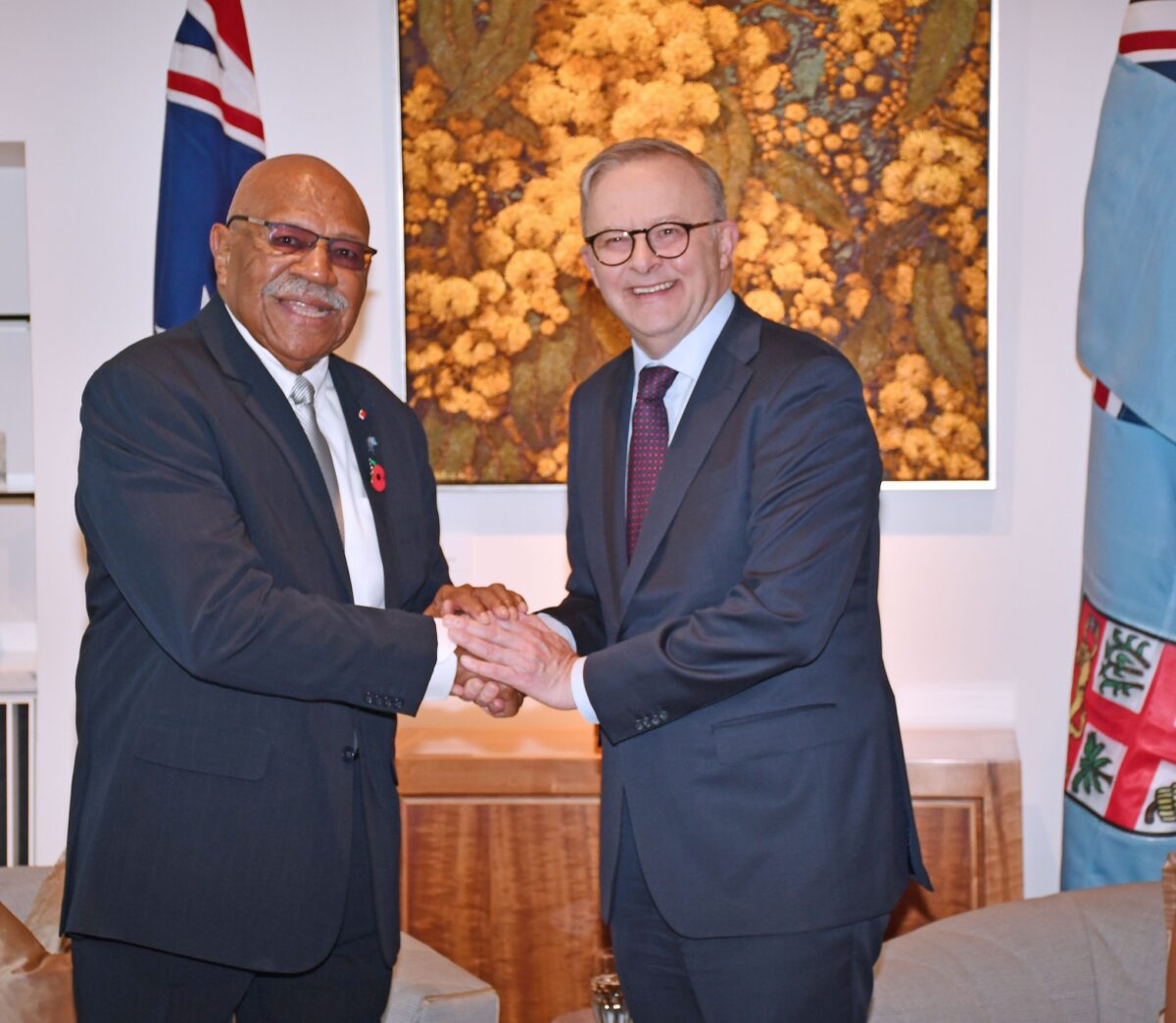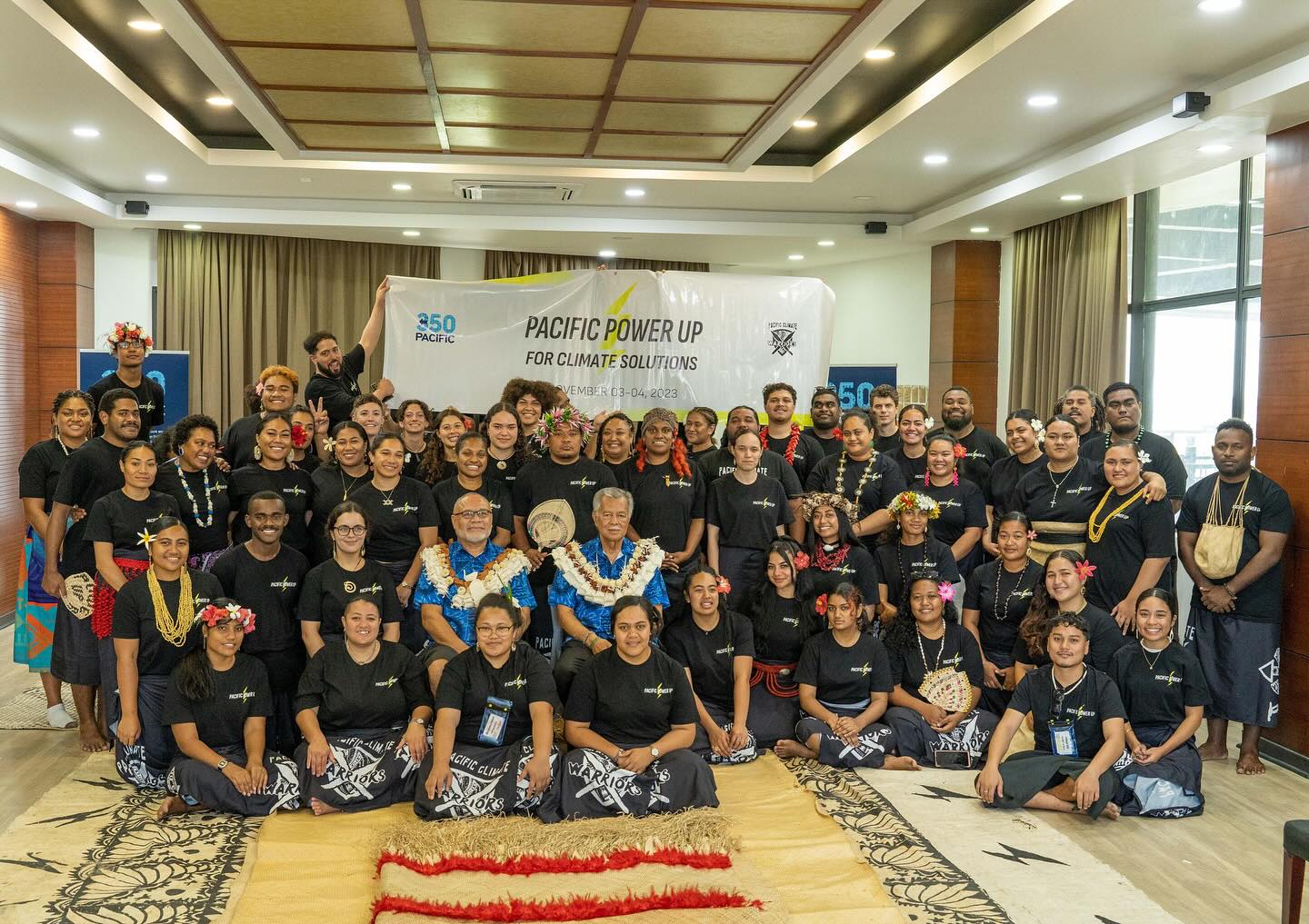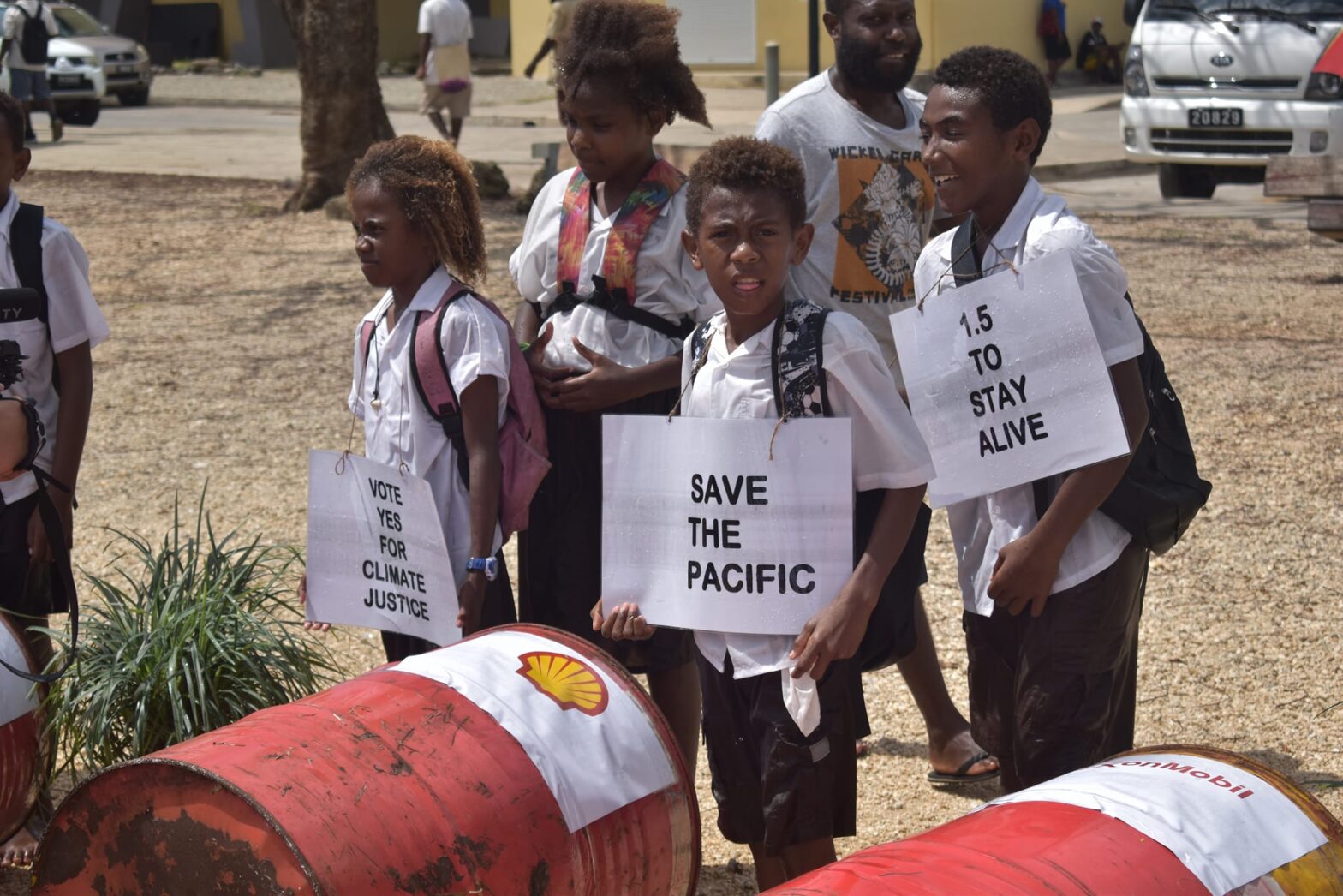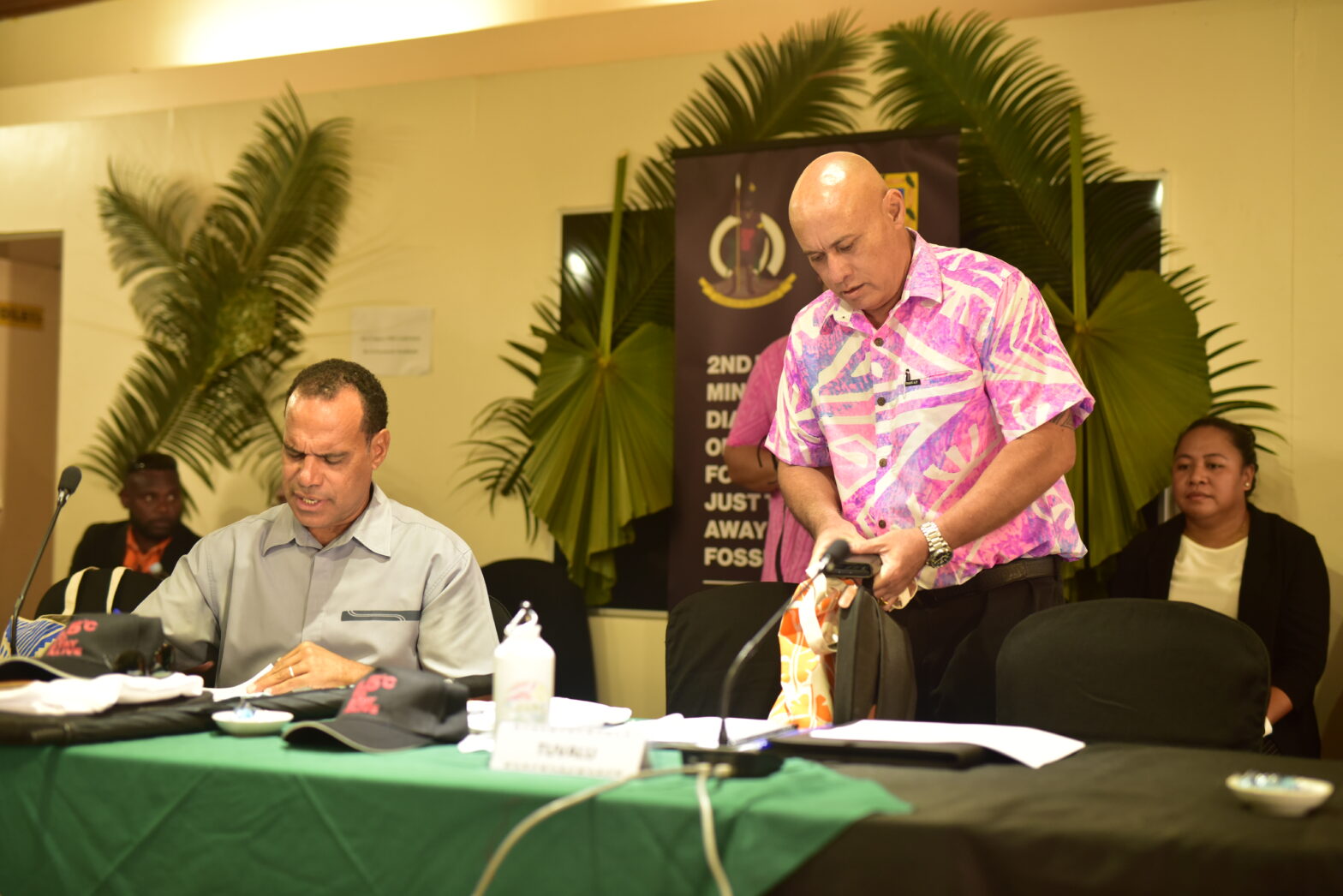Pacific civil society, representing the voices and concerns of communities deeply impacted by the climate crisis is disappointed with the recent remarks made by Fiji’s Prime Minister, Sitiveni Rabuka while on a State visit in Australia. His comments, suggesting that the Pacific take a ‘realistic’ approach towards Australian coal mining and gas production, demonstrate a concerning lack of urgency and empathy for the escalating climate emergency in the Pacific, to deny this fact
At a time when the Sixth Assessment Report from the Intergovernmental Panel on Climate Change (IPCC) urgently calls for an end to all new coal, oil, and gas projects globally, Prime Minister Rabuka’s stance appears tone-deaf to the dire reality faced by Pacific nations. Fossil fuels are the primary drivers of climate change, and the Pacific region is on the front lines of the climate crisis, experiencing its devastating impacts firsthand.
Prime Minister Rabuka’s remarks come off the back of a recent analysis by Oil Change International highlighting Australia’s role as one of five global north countries responsible for the majority (51 per cent) of planned oil and gas expansion to 2050. Australia’s planned new extraction alone would be equivalent to the lifetime emissions of 25 new coal-fired power plants. The projected oil and gas expansion from a small group of countries would push the world well beyond the 1.5-degree threshold, a limit that the Pacific collectively fought to establish. It’s also clear that to reach this target, not only must new expansion be immediately halted, but existing fields will also need to be closed down early.
It is crucial to highlight that Prime Minister Rabuka does not speak for the entire Pacific. Our neighbouring low-lying atoll countries are already enduring immeasurable suffering due to the consequences of the climate crisis. They are engaged in a battle for their survival, their dignity, their homes, and for future generations.
Furthermore, we find these comments to be particularly surprising in light of Fiji’s recent support for the Port Vila Call for a Just Transition towards a fossil fuel-free Pacific. These recent remarks also call into question its role as a ‘friend’ of the Beyond Oil and Gas Alliance whose membership boasts some of the most progressive voices calling for the phase-out of coal, oil and gas production in international climate dialogues.
Australia’s economic reliance on fossil fuels cannot be prioritised over the existential threats faced by Pacific nations. While we acknowledge the economic significance of fossil fuel industries to Australia, we implore our neighbours to recognise the urgent need for a transition towards sustainable and renewable alternatives. The imperative to act is not negotiable.
“We call upon Prime Minister Rabuka to reconsider his position and align Fiji’s efforts with the global consensus for immediate and substantial climate action towards phasing out all fossil fuels and transitioning to renewable Energy. The time for decisive action to safeguard our region and our planet’s future is now, and there is no room for compromise, said the group.
Lavetanalagi Seru, Regional Coordinator, Pacific Islands Climate Action Network said:
“This shift in stance by Prime Minister Rabuka is a cause of concern and disappointing to those of us living on the frontlines of the climate crisis. Backsliding on ambition from a leading island voice on climate action in the international arena is disheartening to see. At a time when the world needs hope and looks to the Pacific for climate leadership, such equivocation is a dereliction of the duty to protect our shared planet, for our future generation. The science is clear! There is no room to further prop up nor to expand the fossil fuel industry, and the PM’s comments are a grave insult to the decades of advocacy and work of climate movements and leaders from the region calling for the immediate phaseout of fossil fuels, as the region grapples with the disproportionate impacts of the climate crisis.”
George Nacewa, Pacific Organiser, 350.org said:
“We are disappointed by the comments from Prime Minister Rabuka enabling Australia’s coal and gas addiction. Science has made clear that fossil fuels are the leading cause of the climate crisis, and the destruction of our villages, reefs and shorelines is what this looks like in reality. The Pacific has always been a strong voice for climate ambition, and I urge the Prime Minister not to lay that legacy to waste. I am a Fijian and I am a father, and if Australia truly is “vuvale” to us, they need to commit to phasing out fossil fuels and show me that they care for the safety of my children’s future.”
Noelene Nabulivou, Executive Director, DIVA for Equality said:
“There is a massive global coalition of States and civil society now working for i) a fast and fair transition to renewable energy for all; ii) that we open NO new fossil fuel projects anywhere, and iii) so that not a cent more goes to fossil fuels, including subsidies.”
‘We cannot sacrifice our wellbeing and health for the sake of Australia’s economic addiction to fossil fuels. Our region grapples with the severe consequences of the climate crisis including rising sea levels, ocean acidification, climate-induced displacements, and more every day. Pacific feminists are clear that we must keep carbon emissions below 1.5 degrees Celsius for the protection of our homes, islands, biodiversity, and our shared planet. We cannot do that, while hold-outs like Australia continue to prioritise their wealth over Pacific and other small island state survival.”
The ‘Vuvale’ concept is about familial unity. This is about aid-backed coercion by Australia and entitled vassal politics. We resist. We call for an end to fossil fuel-based economies, to save us all.”
Shiva Gounden, Pacific Advisor and Community Engagement Manager, Greenpeace Australia Pacific said:
“We are disappointed with the comments made by the Prime Minister of Fiji, Sitiveni Rabuka, regarding Australia’s continued expansion of coal and gas production.
“The remarks strike as particularly tone-deaf at a time when the world, especially those on the frontlines of the climate crisis such as our Pacific family, has been demanding the greatest of climate ambitions to preserve all that we hold dear.
“For that to happen, we need an urgent ban on all new fossil fuel projects and an accelerated phase-out of fossil fuels. As the third largest fossil fuel exporter globally, Australia can not be a true friend to the Pacific as it continues to fuel the climate crisis.”
Dr Mahendra Kumar from the Pacific Elders’ Voice Secretariat has said: “This was a missed opportunity for PM Rabuka to impress upon the Australian Government on the need to wean its dependence on and subsidy of fossil fuels. His statement would be music to the fossil fuel industry which has been using the same argument to prevent greater action on reducing greenhouse gas emissions – amongst the highest in the world on a per capita basis. Australia is the third largest exporter of fossil fuels with a pipeline of projects that could create 4.8 billion tonnes of emissions. There is a huge opportunity to transition to renewable energy by Australia, which would in turn provide greater opportunity for the Pacific SIDS in terms of technology and support to substitute the huge fossil fuel import bills they currently endure. At the very least the Australian Government – if it is serious about being a partner – should stop subsidising and approving gas and coal projects. It should provide new and additional climate change finance to Pacific countries to transition their own economies to clean energy and to protect their communities from the impacts of climate change. There is really no excuse for Australia not to act. It is what science requires. There is no economic argument for Australia’s continued fossil fuel exports.
This story was originally published at PICAN on 20 October 2023, reposted via PACNEWS.




